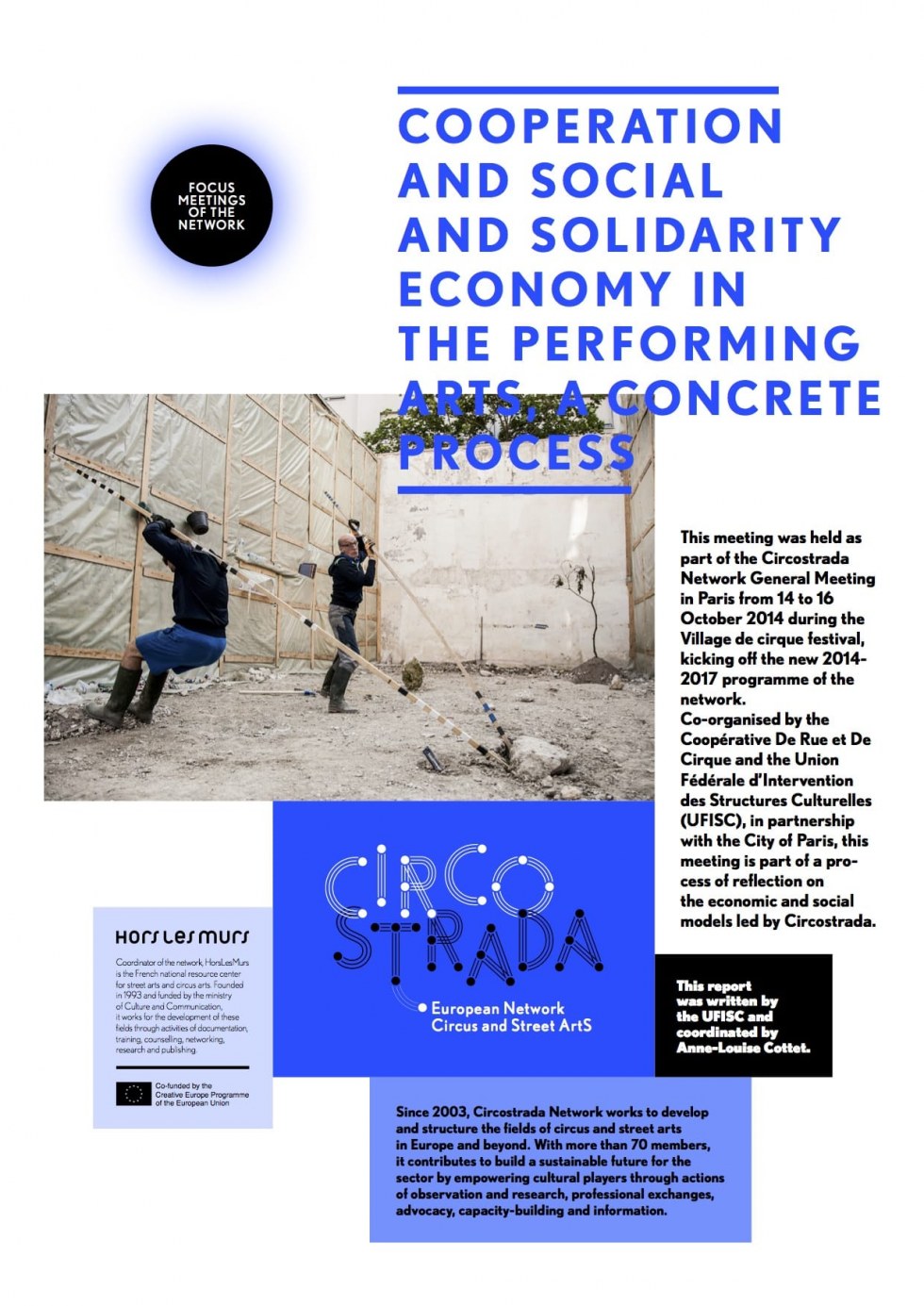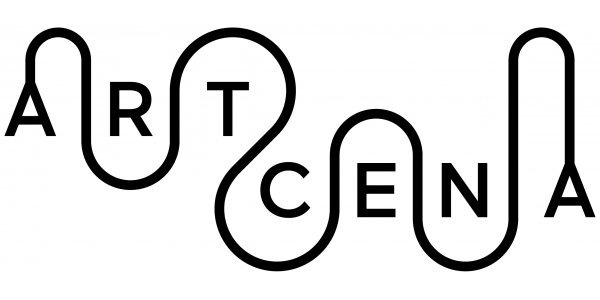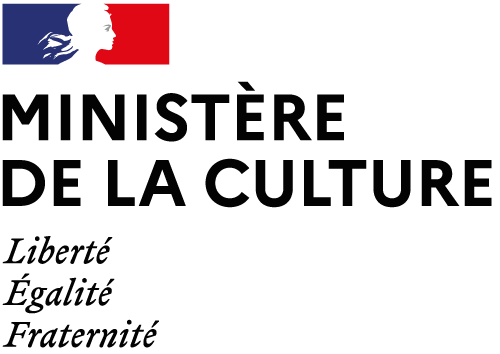Cooperation and Social and Solidarity Economy in the Performing Arts: A Concrete Process
- Contemporary circus
- Outdoor arts
This publication is the result of the meeting entitled "Cooperation and Social and Solidarity Economy in the Performing Arts: A Concrete Process", held during the Circostrada Network General Meeting in Paris from 14 to 16 October 2014.
Co-organised by the Coopérative De Rue et De Cirque and the UFISC (Union Fédérale d’Intervention des Structures Culturelles), in partnership with the City of Paris, this meeting is part of a process of reflection on the economic and social models led by Circostrada.
Edito
As territorial dynamics are being rewritten and social and cultural practices are changing in an increasingly European and globalised context, artistic and cultural projects are developing new cooperative approaches. These diverse initiatives help defend cultural diversity and fundamental rights. New partnership schemes are emerging in an effort to pursue a social and solidarity economy model. These include non-profit collectives, territorial economic cooperation clusters and cooperatives. These movements are working to define other forms of action, with cultural issues seen as a public-interest focus.
What kinds of partnerships can be developed with local stakeholders (universities, public authorities, businesses, social actors, etc.) and citizens? What kind of social and cultural economy can be built in today’s European context?
Table of contents
The Role of the Social and Solidarity Economy (SSE) and Social Innovation in the European Agenda, by Laurent FRAISSE, associate member of the Lise laboratory, researcher at CRIDA and founding member of the LABO de l’ESS (Social and Solidarity Economy laboratory)
- The difficult task of developing a European social and solidarity economy agenda
- Local initiatives pointing to a plural economy
- Why are there so many different concepts across Europe?
- National recognition of the social and solidarity economy unparalleled at the European level
- How can SSE be promoted within the European framework?
- Examples of European agendas to be considered for SSE
Experiences
- La Zinneke Parade, by Myriam Stoffen (Brussels, Belgium)
- La Fabrique des Impossibles, by Mélanie Fioleau (Paris, France)
- The Territorial Economic Cooperation Cluster “Culture & Coopération” by Sopie-Bulle Texier, Vice-President (Saint-Etienne, France)
- The circus collective «Galapiat», by Alain Seradin (Brittany, France)






